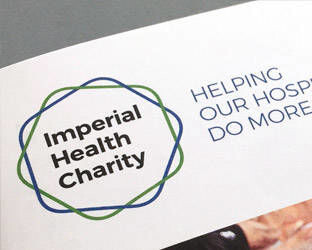Research could pave the way for bowel cancer ‘breath test’
Research could pave the way for bowel cancer ‘breath test’
01 March 2021

Experts at Imperial College London are investigating whether the killer cancer can be detected in a person’s breath.
In a recent study of over 1,400 patients – the largest trial of its kind – researchers found that signs of bowel cancer could be identified in breath samples with a high degree of accuracy.
The researchers say this important study has laid the foundations for further trials that could lead to breath tests being implemented in the future.
Our grant of £67,000 enabled the trial to go ahead, covering the cost of custom-made breath analysis equipment.
How could breath tests be better for patients?
Bowel cancer – also known as colorectal cancer – is among the most common cancers in the UK, killing more than 16,000 people every year*.
But when it’s detected early, 92% of people survive the disease for five years or more.
This means it’s absolutely crucial for doctors to diagnose the disease as soon as possible.
At the moment bowel cancer is mostly diagnosed by performing an invasive endoscopy exam in hospital, which can be unpleasant.
However, a simple breath test would be quick and comfortable for patients – and could be carried out at a GP surgery without the need for a hospital visit.
The use of breath tests could also help to reduce waiting times, so that those who need hospital treatment can access it faster.

What did the trial find?
Working with NIHR nurses and NHS trusts across the capital, researchers from Imperial College London organised the COBRA trial (colorectal breath analysis) which began in 2017.
They used machine learning to analyse over 1,400 breath samples collected from seven London hospitals, looking for compounds linked to bowel cancer.
During the study they discovered 15 cancer-linked compounds and concluded that bowel cancer could be detected in the breath with a high degree of accuracy.
These findings pave the way for a larger second trial – COBRA 2 – which is due to begin at the end of this year and will build on the success of the first.
"The COBRA study could not have happened without the charity's support."
Dr Georgia Woodfield, Gastroenterology Registrar
Dr Georgia Woodfield, a gastroenterology registrar and former clinical research fellow at Imperial College London, led the COBRA study.
She said the results of the trial were “exciting” and that there is now a very real prospect of breath testing being introduced in the future.
“This study could not have happened without the charity’s generous support,” she said. “We’re extremely grateful – the grant made this trial possible.”
*Statistics from Cancer Reseach UK (February 2021)

